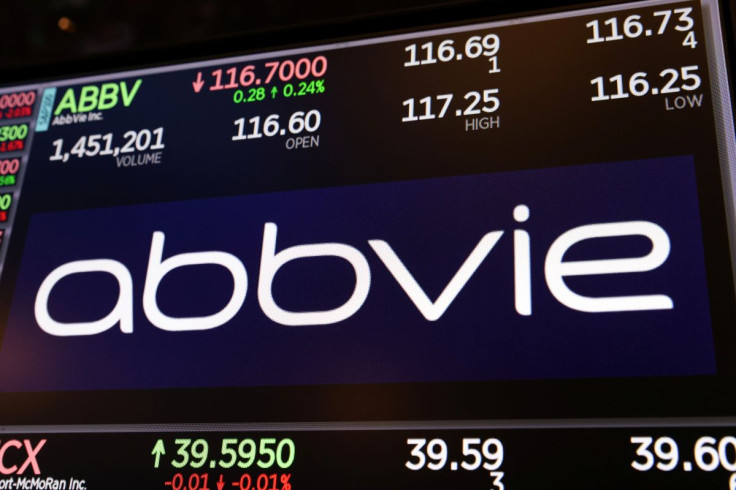AbbVie To Pay Up To $2.37 Billion To Settle U.S. Opioid Claims

AbbVie Inc has agreed to pay up to $2.37 billion to resolve thousands of U.S. lawsuits against its Allergan unit over the marketing of opioid painkillers, state officials announced on Friday.
If finalized, the deal could end more than 3,000 lawsuits by state and local governments around the country. It includes settlements the drugmaker has already reached with states, including $200 million for New York.
"We've worked hard to get the best result for Americans harmed by the opioid crisis, and it's rewarding to take another step in the right direction," Iowa Attorney General Tom Miller, who led negotiations with the company, said in a statement.
AbbVie, which has denied wrongdoing, did not immediately respond to a request for comment. Its stock was down 6% late Friday morning, following an earnings report that incuded a $2.2 billion charge related to the opioid deal.
The deal clears the way for Teva Pharmaceutical to finalize a $4.35 billion settlement of opioid lawsuits it announced this week. Teva bought Allergan's generic drugs unit in 2016, and its settlement was contingent on Allergan reaching a nationwide deal.
COMPETITION HITS CANCER DRUG
AbbVie cut its forecast for annual net revenue to $58.9 billion from $59.4 billion previously, mainly due to stiff competition and weak demand for its blockbuster leukemia drug Imbruvica.
The drug's sales missed market estimates by more than $100 million in the second quarter and the company lowered the expectation for its full-year sales by about $700 million to $4.7 billion.
Overall sales in the April-July quarter came in at $14.58 billion, missing analysts' expectations of $14.64 billion, according to Refinitiv IBES data.
AbbVie said innovation could take a hit from a proposed bill that aims to lower the cost of prescription drugs by allowing Medicare to negotiate treatment prices. The comments echoed statements made by Merck & Co and Pfizer.
© Copyright Thomson Reuters 2024. All rights reserved.











